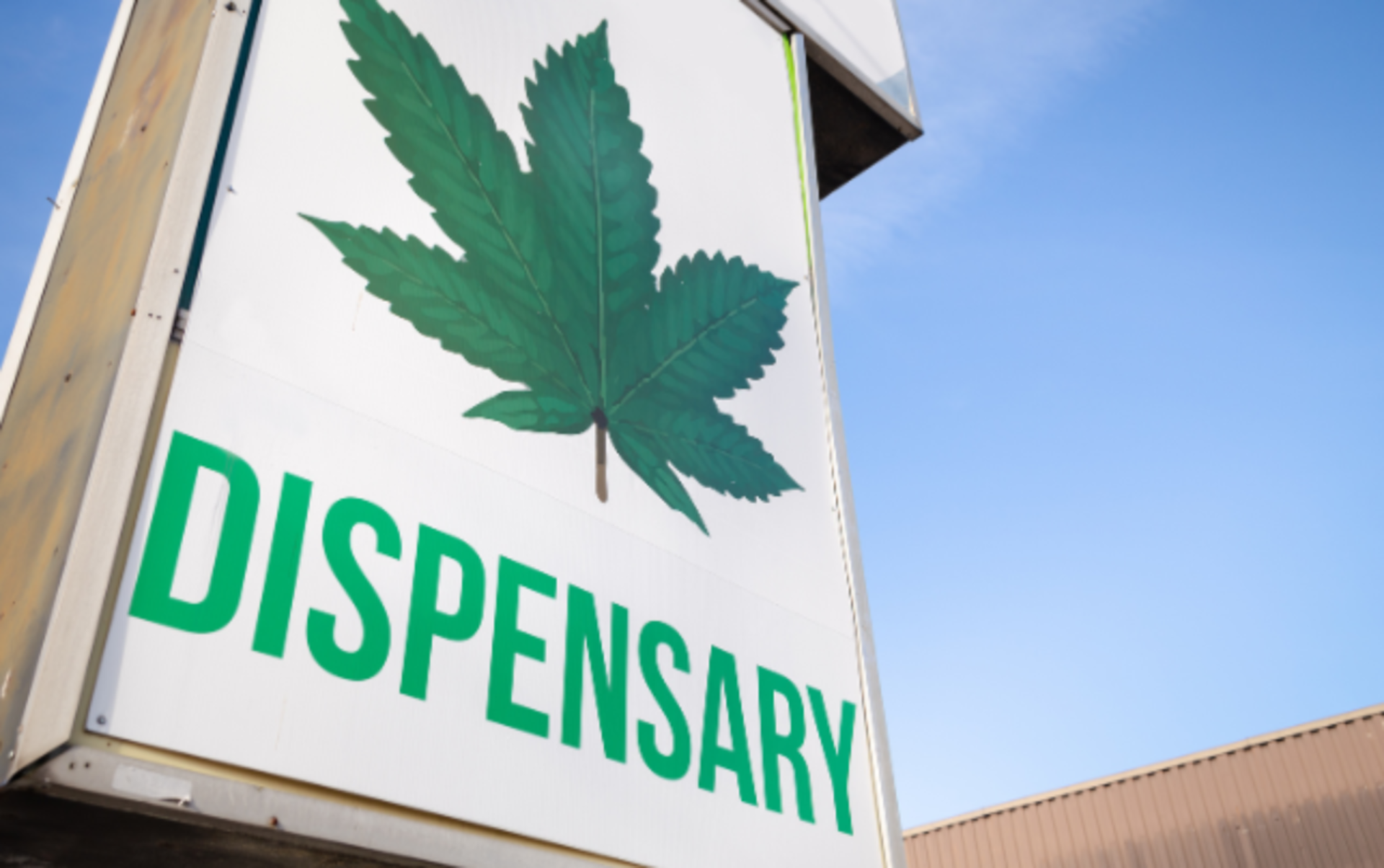
Top 10 Do’s and Don’ts to Avoid Regulatory Fines in Mississippi’s Medical Cannabis Industry
FREE COMPLIANCE WEBINAR!
Gain insight into Mississippi laws and regulations and opportunities in the cannabis industry in an interactive webinar with attorney Conner Reeves and Oaksterdam University, the nation’s oldest and most respected cannabis training institute. Use THIS LINK to register for this free webinar on Wednesday, August 27, 2025 at 12:00pm!
Mississippi’s medical cannabis industry is blooming, offering incredible opportunities for licensed companies to serve patients and contribute to a growing market. However, with great opportunity comes great responsibility—staying compliant with state regulations is critical to avoiding costly fines and protecting your business.
Our experience is that the overwhelming majority of licensees are trying to follow the law and regulations. Very few are looking for ways to operate outside the bounds of the law, though every industry has bad apples. Over the past year, we have responded to a number of corrective action requests and citations received by our clients. Quite a few have been based on an agency’s erroneous interpretation of their own regulations or have been aggressive accusations for minor non-compliance matters. If you fall into this category, what can you do?
Whether you’re growing, processing, or selling medical cannabis, navigating the regulatory landscape can feel like tending a delicate plant: it takes care, attention, and know-how to flourish. To help you thrive, we’ve compiled the Top 10 Things to Do and Not Do to stay on the right side of Mississippi’s medical cannabis laws. Follow these tips to keep your business blooming and avoid the thorns of regulatory fines!
1. DO: Maintain Detailed and Accurate Records
Why it matters: Mississippi’s Department of Health and Department of Revenue require meticulous record-keeping to track everything from seed-to-sale to financial transactions. Accurate records demonstrate transparency and compliance.
What to do: You must use METRC in Mississippi, the state-approved seed-to-sale tracking system, to log every stage of cannabis cultivation, processing, and sales even if you use a third-party Point-of-Sale software also.
Keep detailed financial records, all transaction records, employment records, theft and loss records, and any pesticides/chemical application records for a minimum of five (5) years. Regularly audit your records to catch and correct errors before they become issues.
Real world example: One of our clients received a corrective action notice and a fine for “backdating” harvests and not updating METRC in real time when a harvest occurred. The licensee was given the opportunity to correct this error by providing an updated Standard Operating Procedure (SOP) showing how they would input correct dates in real time and provide proof of giving their staff additional education on this procedure.
2. DON’T: Ignore Employee Training Requirements
Why it matters: Untrained staff can lead to unintentional violations, like improper handling of cannabis products or failure to verify patient cards. Mississippi regulations mandate proper training for all employees.
What not to do: Don’t assume employees “know enough” without formal training. Don’t skip regular refreshers on compliance protocols, especially as regulations evolve.
What to do instead: Develop a comprehensive training program covering state laws, product safety, and patient interactions. Document all training sessions to prove compliance during inspections.
Real world example: One of our clients received a corrective action notice after a site visit that showed licensee staff not having their credentials physically worn by the employee while working at the licensed establishment. The owner of the company was given a citation for this error and given an opportunity to correct it by providing additional staff training on the importance of having their work permit on a lanyard while the employees were on site.
3. DO: Follow Packaging and Labeling Rules
Why it matters: Mississippi has strict requirements for packaging and labeling to ensure patient safety and prevent unauthorized access (e.g., child-resistant packaging, accurate THC content).
What to do: Ensure all products are packaged in tamper-evident, child-resistant containers. Include all required label information, such as strain, potency, batch number, and health warnings. Work with compliance experts to review packaging before distribution.
Real world example: A client of ours received a citation due to packaging that contained prohibited design elements. Ultimately the licensee was able to use their current stock of existing labels but was required to redesign their labels to be regulatory compliant. A review of the regulations before printing the labels would have avoided this issue.
4. DON’T: Assume one non-owner employee is accurately maintaining records and entering information into METRC.
Why it matters: Delegating is a part of any business, but the business owner is still responsible for any METRC and recordkeeping requirements.
What not to do: Don’t rely on one employee to ensure your business is compliant. Don’t assume an employee has the same interest in maintaining regulatory compliance as the owners of the business.
What to do instead: Train staff to accurately input information into METRC and keep records, a process that should be familiar with an executive of the business also. Also conduct regular audits of your information by someone other than the person inputting the information into METRC to ensure accuracy.
Real world example: One of our clients received an initial corrective action notice for incorrect and untimely information in METRC, which was a duty delegated to an employee. The MSDH conducted a second site visit 6 months later and the business had the same problem. The business received a monetary fine for the second occurrence. The business owner had to become proficient in the recordkeeping process and regularly audit their records to ensure this issue did not happen again.
5. DO: Conduct Regular Facility Inspections
Why it matters: Clean, secure, and compliant facilities are non-negotiable. The state conducts unannounced inspections to ensure your grow, processing, or dispensary site meets safety and security standards.
What to do: Perform internal inspections to check for proper storage, sanitation, and security measures (e.g., cameras, alarms). Address any issues immediately, such as leaks, pest control, or outdated equipment. Keep a log of internal inspections to show regulators your proactive approach.
Real world example: A client of ours received a citation for having security cameras that did not correspond with the diagram of the licensed facility as uploaded to the MMCP portal and did not provide total coverage of the room in which the cameras were located. The licensee was able to relocate the cameras to ensure complete coverage and updated the camera locations on the diagram to become compliant.
6. DON’T: Trash talk MSDH or MSDOR employees when they conduct a site visit.
Why it matters: MSDH and MSDOR regularly conduct unannounced site visits and your employee’s conduct with the state employees is a reflection on your business. A negative interaction could impact your ability to work with MSDH and MSDOR on a corrective action notice or other issues with your business.
What to do instead: Train staff on how to interact with MSDH and MSDOR investigators including what to say, what not to say, and how to handle the receipt of a corrective action notice. Work with an experienced attorney on drafting a response to a corrective action notice. Be present throughout a site visit and document any findings by the investigator.
Real world example: MSDH staff made a site visit to a cultivation client of ours. The field officer noted several regulatory violations and a staff person got into an argument with the officer about various issues. Ultimately the staff person was wrong about the rule violations and created additional issues due to how this person interacted with the field officer.
7. DO: Pay Taxes on Time
Why it matters: Mississippi imposes specific taxes on medical cannabis sales, and late or incorrect payments can trigger hefty fines from the Department of Revenue.
What to do: Set up a system to track and remit taxes as required. Work with a cannabis-savvy accountant to ensure accurate calculations. Keep detailed tax records to resolve any disputes quickly.
8. DON’T: Market or Advertise Improperly
Why it matters: Mississippi has strict rules on cannabis advertising related to patients obtaining medical cards.
What not to do: Don’t advertise your dispensary in a certifying medical provider’s clinic and don’t host a patient sign-up event at your location.
What to do instead: Market your business in the approved methods found in the MMCP regulations. Have all ads reviewed by legal or compliance experts before publishing.
Real world example: A client of ours received a citation for having what appeared to be a referral relationship with a certifying medical provider. The licensee was required to pay a fine which would have been avoidable by first reviewing the regulations.
9. DO: Stay Updated on Regulatory Changes
Why it matters: Mississippi’s medical cannabis program is still evolving, and new rules or amendments can catch unprepared businesses off guard.
What to do: Subscribe to updates from the Mississippi Department of Health and Department of Revenue. Attend industry webinars, workshops, or legal seminars to stay informed. Partner with a law firm or consultant specializing in cannabis compliance.
10. DON’T: Neglect Security Protocols
Why it matters: Security is a cornerstone of Mississippi’s cannabis regulations to prevent theft, diversion, or unauthorized access.
What not to do: Don’t skimp on security measures like cameras, alarms, or restricted access areas. Don’t allow unverified visitors or employees into secure areas.
What to do instead: Install and maintain state-approved security systems, including 24/7 video surveillance with off-site data storage. Train staff on security protocols and conduct regular drills.
Conclusion: Grow Smart, Stay Compliant! Mississippi’s medical cannabis industry is a vibrant and rewarding space, but it demands diligence to stay compliant. By following these dos and avoiding these don’ts, your business can focus on what matters most: serving patients and growing a thriving operation. Think of compliance as the sunlight and water your business needs to flourish—give it the attention it deserves, and you’ll avoid the weeds of regulatory fines.
If you’re unsure where to start, consult with a Mississippi-based attorney or compliance expert who knows the ins and outs of the state’s medical cannabis program. Let’s keep Mississippi’s cannabis industry blooming strong!
FREE COMPLIANCE WEBINAR! Gain insight into Mississippi laws and regulations and opportunities in the cannabis industry in an interactive webinar with attorney Conner Reeves and Oaksterdam University, the nation’s oldest and most respected cannabis training institute.
Use THIS LINK to register for this free webinar on Wednesday, August 27, 2025 at 12:00pm! Also use the discount code “MSLAW” to get 10% OFF any Oaksterdam program (except the All Access Pass).
This “lunch and learn” will provide valuable insights into compliance with MS state laws and regulations, as well as job and business opportunities. Learn how Oaksterdam University's training can give you a competitive edge and help you avoid costly compliance violations and fines.





